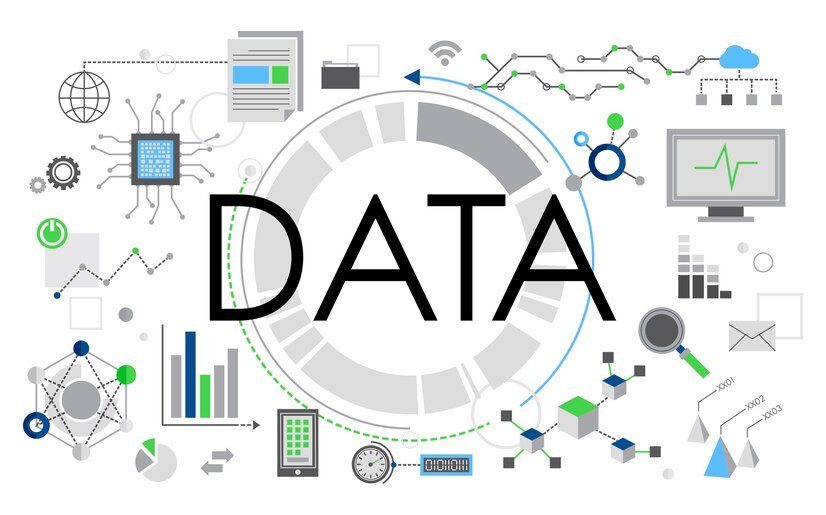The data processing services industry has been significantly impacted by the big data boom, as have many other industries. Current information age is described by its sheer volume, speed, and assortment, which makes further developed and successful data handling and investigation methods important. Understanding and utilizing big data is essential for a data processing services company to remain competitive and provide value to clients. We’ll examine the significant effects of big data on data processing services in this guest blog post, emphasizing the main advantages, difficulties, and upcoming developments.
Understanding Big Data
These statistics frequently originate from a variety of sources, including as transactions, social media, sensors, and more. Three qualities can be utilized to characterize large information SYMLEY:
- Volume: The vast amount of data generated every second.
- Velocity: the rate at which newly created data must be handled.
- Variety: The different types of data, such as structured, unstructured, and semi-structured.
Benefits of Big Data for Data Processing Services
- Enhanced Decision-Making: Data processing service providers can offer more precise and fast insights thanks to big data analytics. Businesses can find correlations, trends, and patterns in massive volumes of data that were previously difficult to find by studying the data. Clients benefit from improved strategic planning and decision-making as a result.
- Improved Efficiency: Big data solutions like Hadoop and Spark enable the processing of large datasets at rates never before possible. Because of its efficiency, data processing takes less time and money, enabling businesses to provide services that are both quicker and more affordable.
- Personalization and Customization: Big Data enables data processing service providers to provide more individualized solutions. Businesses can better satisfy and retain customers by customizing their offerings based on the analysis of customer data.
- Predictive Analytics: Big data enables predictive analytics, which forecasts patterns and behaviors in the future. Businesses trying to remain ahead of the competition by predicting shifts in the market and consumer preferences will find this capability to be quite beneficial.
Challenges of Big Data in Data Processing Services
- Data Security and Privacy: With the increasing amount of data comes heightened concerns about security and privacy. Data processing services company must implement robust security measures to protect sensitive information and comply with regulations like GDPR and CCPA.
- Data Quality: Ensuring the quality and accuracy of big data is a significant challenge. Inaccurate or incomplete data can lead to erroneous insights and decisions. Data processing services companies must invest in data cleansing and validation processes to maintain high data quality.
- Scalability: Managing and processing large volumes of data requires scalable infrastructure. Data processing services companies need to invest in scalable solutions that can grow with the increasing data demands of their clients.
- Skill Gap: The complexity of big data technologies necessitates specialized skills. There is a growing demand for data scientists, data engineers, and other professionals proficient in big data tools and techniques. Companies must invest in training and hiring skilled personnel to effectively manage big data projects.
Future Trends in Big Data and Data Processing Services
- Artificial Intelligence and Machine Learning: AI and ML are becoming integral to big data analytics. These technologies can automate data processing tasks, uncover hidden patterns, and provide predictive insights. Data processing services companies that integrate AI and ML into their offerings will have a competitive edge.
- Edge Computing: As the Internet of Things (IoT) continues to grow, edge computing is gaining traction. This approach involves processing data closer to its source, reducing latency and bandwidth usage. Data processing services companies will need to adapt to this trend by developing edge computing capabilities.
- Real-Time Analytics: The demand for real-time data processing and analytics is on the rise. Businesses need instant insights to make quick decisions and respond to market changes. Data processing services companies must invest in technologies that support real-time data processing and provide clients with up-to-the-minute information.
- Data Governance and Compliance: With increasing data regulations, robust data governance practices are essential. Data processing services company will need to prioritize data governance to ensure compliance and build trust with clients. This includes implementing data lineage, auditing, and compliance monitoring tools.
Conclusion
There is no denying big data’s influence on data processing services. For businesses that provide data processing services, it offers both possibilities and difficulties. Big data technology allow businesses to make better decisions, work more efficiently, and provide more individualized services. They also need to deal with issues with scalability, quality, talents, and data security. Looking, the future of data processing services will be shaped by developments like artificial intelligence (AI), edge computing, real-time analytics, and data governance. In the big data era, businesses that keep ahead of these trends and make the necessary investments in skills and technologies will prosper.
As a top provider of data processing services, realizing the benefits of big data is essential, not just a choice. By staying informed about the latest trends and continuously improving your capabilities, you can provide exceptional value to your clients and secure a competitive advantage in the ever-evolving landscape of data processing services.



More Stories
Dental Billing Software: How It Can Boost Your Income
Transforming Retail Experiences with AI in Retail: Personalization, Automation, and Smarter Inventory Management
The Art of Web Designing in Dubai UAE